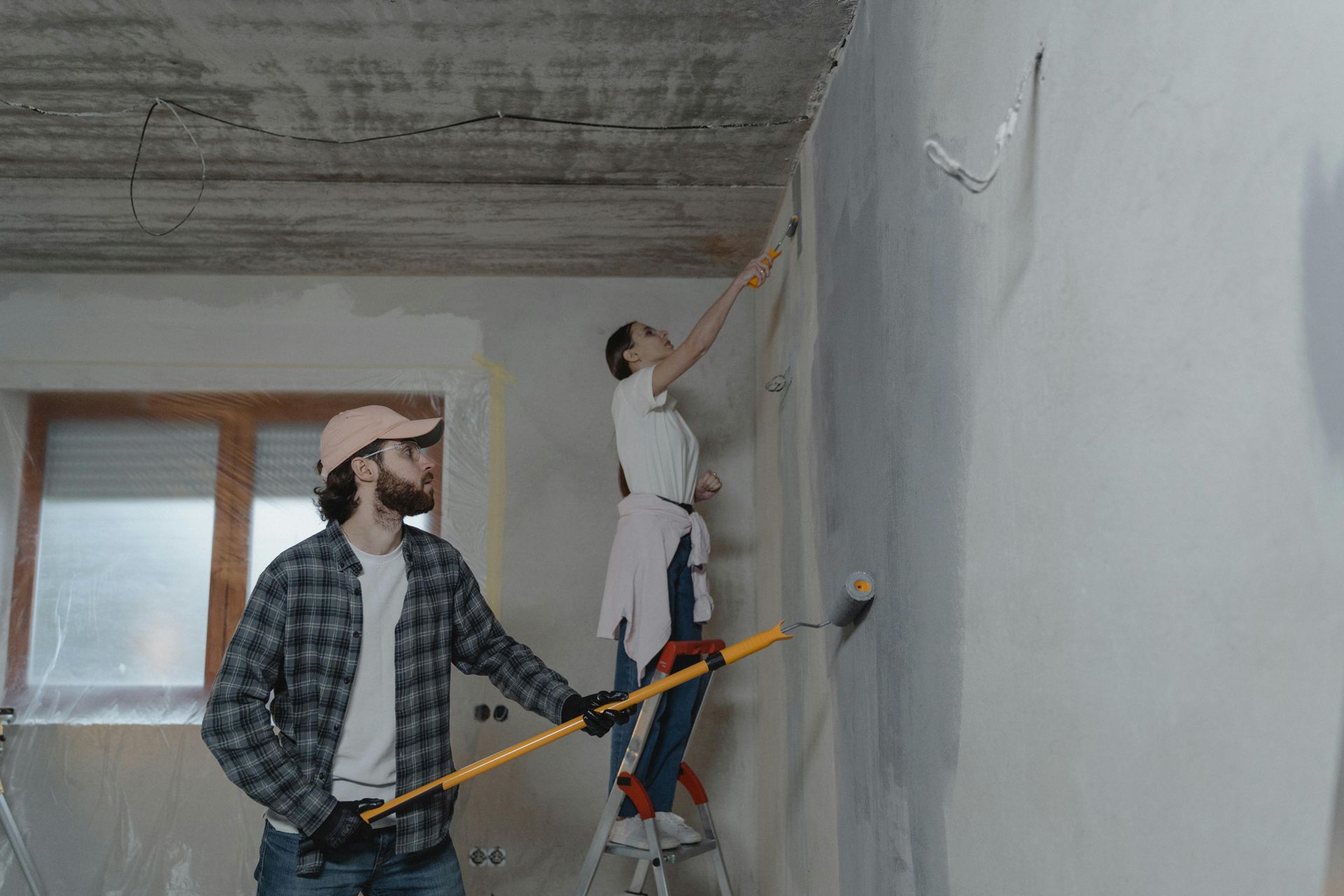Pre Settlement Inspection Checklist: The Complete Guide for Australian Home Buyers
In today's competitive Australian property market, a thorough Pre Settlement Inspection Checklist is essential to safeguard your investment and ensure your new home meets every agreed specification. At Shafbuild, we believe that a comprehensive pre-settlement inspection is a key component of the home buying process. This guide explains what a pre settlement inspection is, why it’s important, and provides you with an in-depth Pre Settlement Inspection Checklist that you can use to identify any issues before final settlement. Whether you’re a first-time buyer or a seasoned investor, understanding the pre settlement inspection process and following a detailed Pre Settlement Inspection Checklist will give you the confidence to finalise your purchase with peace of mind.
Understanding Pre Settlement Inspections
What is a Pre Settlement Inspection?
A pre settlement inspection is a final, detailed review of a property conducted just before settlement. This pre settlement inspection checklist is designed to verify that the construction or renovation meets the contractual standards and that any agreed-upon repairs have been completed. During a pre settlement inspection, you check everything from the structural integrity of the building to the functionality of everyday features. For example, you may inspect the quality of the paintwork, the condition of the flooring, and the operation of electrical fixtures. In essence, a Pre Settlement Inspection Checklist ensures that the home you are about to purchase is delivered in the condition promised, providing a safety net for potential defects that might otherwise lead to costly repairs later.
Do You Need a Pre Settlement Inspection?
Yes, a pre settlement inspection is an indispensable step in the home buying process. Even if the property appears flawless at first glance, there may be underlying issues that can only be identified through a meticulous review. By using a Pre Settlement Inspection Checklist, you can uncover defects or incomplete work that might have been overlooked during the construction or renovation. This process not only protects you from unexpected repair costs but also confirms that all aspects of the property comply with the contractual requirements. As a result, a thorough pre settlement inspection gives you the assurance that your investment is sound and that you are receiving a property that meets your expectations.
Timing Your Pre Settlement Inspection
When Should You Conduct the Pre Settlement Inspection?
The ideal time to conduct your pre settlement inspection is shortly before the settlement date. This timing is crucial because it ensures that any last-minute issues are identified and addressed promptly. Factors such as weather conditions, the builder’s schedule, and overall project timelines can influence the optimal time for your pre settlement inspection. A well-timed Pre Settlement Inspection Checklist allows you to catch any defects or incomplete work right before final settlement, so you have ample opportunity to negotiate repairs or adjustments with the builder.
Who Should Conduct the Pre Settlement Inspection?
Choosing the right inspector is paramount. A qualified, third-party home inspector or a trusted contractor who specialises in building quality inspections should be hired to conduct your pre settlement inspection. A professional will use a detailed Pre Settlement Inspection Checklist to provide an unbiased, comprehensive report on the condition of your property. At Shafbuild, we recommend using independent experts who can thoroughly assess every aspect of your new home, ensuring that your pre settlement inspection checklist is executed with precision and expertise.
The Pre Settlement Inspection Checklist: What to Look For
A detailed Pre Settlement Inspection Checklist is your roadmap to ensuring that your property is in perfect condition before settlement. Below are the key areas you should inspect, along with useful tips and guidelines.
Structural and Safety Elements
- Foundation and Walls:
Check for cracks, water damage, or any signs of structural weakness. A solid foundation is critical, as any issues here could indicate deeper problems in the building structure. - Roof and Gutters:
Inspect the roof for missing or damaged shingles, and ensure gutters are free from debris and blockages. This step is vital to prevent future water damage and leaks. - Windows and Doors:
Verify that all windows and doors are properly installed, secure, and functional. Ensure that there are no gaps or damage that could compromise insulation or security.
Electrical and Lighting Systems
- Lights and Electronics:
Test all light fixtures, power outlets, and switches to confirm they are working correctly. Inspect for any signs of damaged wiring or faulty installations. - Wiring and Circuit Breakers:
Ensure that the wiring is safely installed and that circuit breakers are accessible and functional. This not only impacts your comfort but also your safety.
Plumbing and Water Systems
- Plumbing:
Check all taps, showers, and toilets for leaks, proper water pressure, and effective drainage. Verify that all plumbing connections are secure. - Water Heaters:
Ensure that water heaters are operational and safely installed, with no signs of leakage or corrosion.
Heating, Ventilation, and Air Conditioning (HVAC)
- Air Conditioners and Heaters:
Test HVAC systems to ensure they are functioning efficiently. Check for proper installation and that all units meet performance standards.
Fixtures, Fittings, and Finishes
- Door Handles and Locks:
Inspect all door handles, locks, and security systems to ensure they are installed as per the contract and function properly. - Appliances:
Verify that built-in appliances are installed correctly and are in good working order. - Curtains and Blinds:
Ensure that window treatments are installed as agreed and are free from defects. - Flooring:
Examine flooring for any signs of damage, uneven surfaces, or installation issues.
Additional Items
- Pool and Spa Filters (if applicable):
Confirm that pool and spa filters, along with other related equipment, are operational. - Pest Control:
Look for any signs of pest infestations and verify that necessary pest control measures have been implemented. - Smoke Alarms:
Test all smoke alarms and fire detection systems to ensure they are working and compliant with safety standards. - General Cleanliness:
The property should be clean, free of construction debris, and ready for handover, ensuring a welcoming living environment.
What to Do If Issues Are Found
Addressing Defects and Incomplete Work
If your Pre Settlement Inspection Checklist reveals any issues, it is important to document them thoroughly. Take clear photos and detailed notes on all defects or areas of concern, whether they are minor cosmetic issues or significant structural defects. This documentation will serve as a basis for negotiating repairs with your builder or seller.
Communicating with Your Builder or Seller
Once issues have been identified, open a dialogue with your builder or seller immediately. Present your documented findings and negotiate for repairs or adjustments before settlement. Effective communication during this stage is critical to ensuring that your pre settlement inspection checklist is fully addressed, protecting your investment and ensuring that the property meets your expectations.
Final Steps Before Settlement
Documenting the Inspection
Keep a detailed record of the inspection report, including all findings from your Pre Settlement Inspection Checklist. This documentation will be invaluable if any disputes arise after settlement regarding the condition of the property.
Preparing for Handover
Ensure that all identified issues are resolved before the final walkthrough. Conduct a final review using your pre settlement inspection checklist to confirm that the property is in perfect condition and ready for settlement. This final step ensures that your new home is delivered as promised, giving you the confidence to complete your purchase.
Frequently Asked Questions (FAQ)
- What is a pre settlement inspection?
A pre settlement inspection is a detailed review of a property conducted just before settlement, aimed at ensuring all contractual standards have been met. - Who should perform the pre settlement inspection?
It is recommended that a professional home inspector or a trusted third-party contractor carries out the inspection using a comprehensive Pre Settlement Inspection Checklist. - What should I do if I find defects during the inspection?
Document all issues with photos and notes, then discuss these findings with your builder or seller to arrange for necessary repairs before settlement.
Ensuring a Smooth Settlement with Shafbuild
A thorough Pre Settlement Inspection Checklist is indispensable for protecting your investment and ensuring that your new home is delivered to the highest standards. By following the detailed guidelines outlined in this article, you can identify any potential issues before settlement and negotiate necessary repairs with confidence. At Shafbuild, we are dedicated to helping you navigate the pre settlement inspection process with clarity and expertise. Whether you are a first-time buyer or a seasoned investor, using a comprehensive pre settlement inspection checklist will provide you with peace of mind and ensure a smooth, stress-free settlement. Trust our expert guidance to help you secure a property that truly meets your expectations and contractual requirements.










